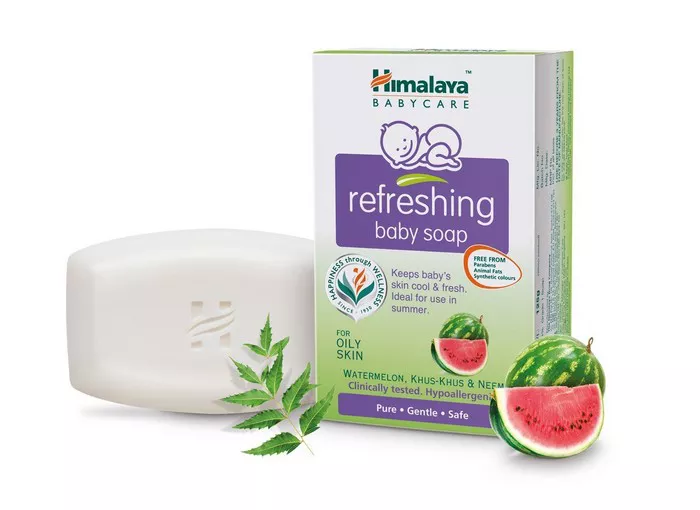Welcoming a newborn into the world comes with a myriad of decisions, especially when it comes to their delicate skin care regimen. One common question that arises among parents is whether it is safe to use soap on newborns. This article aims to provide a comprehensive guide backed by medical insights and pediatric recommendations to help parents make informed choices for their baby’s skincare routine.
Understanding Newborn Skin
Newborns possess highly sensitive and delicate skin that is significantly different from adult skin. At birth, their skin is thinner, more permeable, and less oily, making it prone to dryness, irritation, and potential reactions to harsh chemicals. These factors necessitate a cautious approach when selecting skincare products for infants.
The Importance of Gentle Cleansing
The primary goal of cleansing a newborn’s skin is to remove impurities without compromising its natural protective barrier. Unlike adults, newborns do not require daily baths as their skin does not produce as much oil and can easily dry out. Pediatricians often recommend limiting baths to two to three times per week during the first year unless circumstances require more frequent washing due to diaper leaks or spit-ups.
When bathing your newborn, lukewarm water alone is often sufficient for routine cleansing. The use of soap or cleansers should be sparing and carefully chosen to avoid harsh ingredients such as fragrances, dyes, and sulfates that can strip away natural oils and irritate sensitive skin.
See Also: Can You Use Water Wipes on a Newborn: What You Need to Know
Choosing the Right Soap for Newborns
Not all soaps and cleansers are suitable for newborns. Ideally, choose products specifically formulated for infants, marked as “gentle,” “tear-free,” and “hypoallergenic.” These products are designed to cleanse effectively while minimizing the risk of irritation and allergic reactions.
Look for ingredients such as oatmeal, aloe vera, and coconut oil, which are known for their soothing and moisturizing properties. Avoid products containing harsh chemicals like parabens, phthalates, and formaldehyde-releasing preservatives, as these can be too harsh for delicate newborn skin.
Best Practices for Bathing Your Newborn
When bathing your newborn, follow these steps to ensure a gentle and safe experience:
1. Temperature Control: Always check the water temperature with your elbow or a thermometer to ensure it is comfortably warm (around 37°C or 98.6°F).
2. Minimal Soap Usage: Use a small amount of mild baby soap or cleanser on a soft washcloth or your hands. Gently cleanse the baby’s skin, focusing on creases where dirt and bacteria can accumulate.
3. Rinsing: Thoroughly rinse off all soap residue from the baby’s skin to prevent irritation.
4. Pat Dry: After bathing, pat the baby’s skin dry with a soft towel. Avoid rubbing, which can cause friction and irritation.
5. Moisturization: Apply a gentle, fragrance-free moisturizer to lock in hydration and protect the skin barrier.
Special Considerations for Newborn Skin Conditions
Newborns may experience various skin conditions that require specific care:
1. Diaper Rash: Keep the diaper area clean and dry. Use a barrier cream with zinc oxide to protect against moisture and irritation.
2. Baby Acne: Baby acne is common and typically resolves on its own. Avoid using harsh cleansers or picking at the acne.
3. Eczema: If your newborn has eczema or dry patches, consult with a pediatrician for appropriate skincare recommendations. Use gentle moisturizers and avoid triggers such as harsh fabrics and strong detergents.
Tips for Maintaining Healthy Newborn Skin
In addition to bathing, there are daily practices that can help maintain the health and integrity of your newborn’s skin:
1. Clothing Choices: Opt for soft, breathable fabrics such as cotton to minimize irritation.
2. Sun Protection: Keep your newborn out of direct sunlight and dress them in lightweight clothing that covers their arms and legs. Use a small amount of baby-safe sunscreen if your baby is older than six months and sun exposure is unavoidable.
3. Hydration: Ensure your baby stays hydrated by offering breast milk or formula regularly. Hydration helps maintain skin elasticity and overall health.
Conclusion
Navigating the world of skincare for newborns can be overwhelming, but understanding the unique needs of their delicate skin is crucial. By choosing gentle products, practicing proper bathing techniques, and being mindful of potential skin conditions, you can help protect and nurture your baby’s skin from the very beginning. Always consult with your pediatrician if you have concerns or notice any unusual changes in your newborn’s skin. With thoughtful care and attention, you can establish a skincare routine that promotes comfort, health, and well-being for your precious little one.


